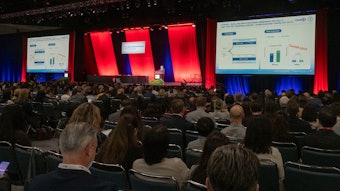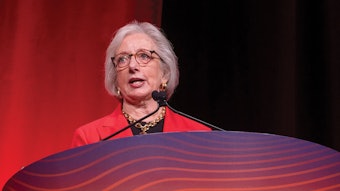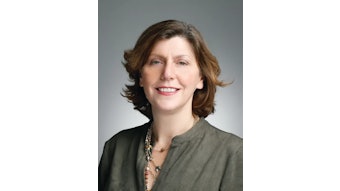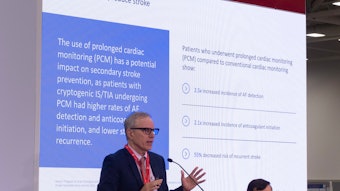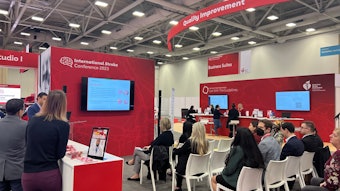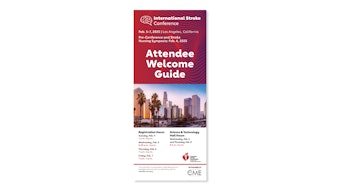Communities at risk: Small changes lead to big improvements
Keith Churchwell, MD, FAHA, calls on health care professionals to tackle hypertension and advance health equity.

In his address yesterday, AHA President Keith Churchwell, MD, FAHA, shared his personal story and vision for the future of medicine. Rooted in the values instilled by his parents — a pioneering journalist and an inspiring educator who challenged their children by constantly asking, “What can you do to help?” — Churchwell spoke of the power of perseverance, community and responsibility to drive meaningful change in health care.
Reflecting on the strides made in stroke care, Churchwell highlighted the successes of the Get With The Guidelines-Stroke program, which has revolutionized the delivery of acute stroke care and fostered a community for like-minded researchers.
“You, the real drivers behind (this program), are a force for good, a concrete answer to the question, ‘How can I help?’” he told the audience.
Despite these recent advancements, Churchwell underscored the pressing challenges of hypertension and health equity. Citing alarming statistics, he warned that if current trends persist, the prevalence of hypertension and stroke will surge dramatically by 2050.
“The fact that patients aren’t hearing the alarm bells going off and responding to them shows how far we need to go in this effort. The messages, the messengers — everything needs to be re-evaluated,” he said, calling for a renewed focus on blood pressure management to reduce the burden of cerebrovascular events.
“As a cardiologist speaking to a group of learned neurologists, hypertension is one of those areas where we are all sisters and brothers in arms,” Churchwell said. “In fighting this battle, we need to be closely aligned with more of our colleagues — especially those in primary care — to spread the message that a vital step toward reducing acute cerebral events is by effective management of hypertension.”
Churchwell also emphasized the need to address adverse social drivers of health, which disproportionately affect underserved communities.
“Improving hypertension control with direct initiatives for communities at risk, as well as mitigating the social drivers of health, will have a significant impact on stroke events,” he said, highlighting AHA initiatives like Target BP, a program aimed at improving blood pressure control in at-risk communities, as practical tools to achieve these goals. “Small changes in control of BP will lead to a big reduction in cardiovascular and stroke events and death: A real return on investment.”
Ending on a call to action, Churchwell posed the same question that shaped his upbringing: “What can we do to help?” He urged health care professionals to take collective and individual steps to combat hypertension, advance health equity and improve patient and community outcomes.
“None of us is expected to have all the solutions,” he said. “But I’ve learned that each of us can do something — and together, we can play parts large and small to make a difference. And not only can we — we must.”

